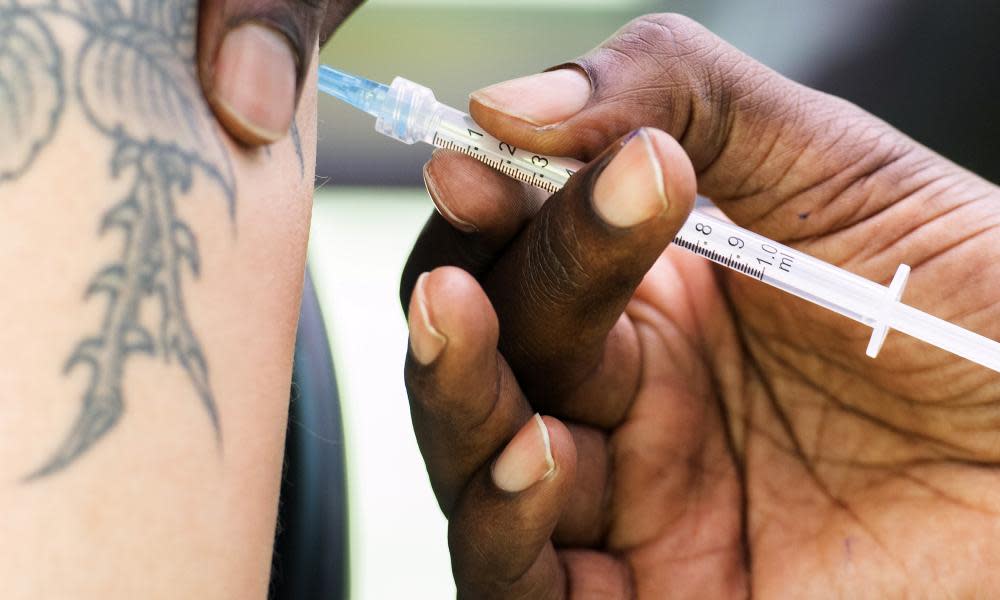Monkeypox is truly an emergency. The WHO was right to raise the highest alarm

Probably the last thing you want to hear is that the World Health Organization has declared another disease – this time monkeypox – to be a public health emergency of international concern. Monkeypox is a virus similar to smallpox that causes fever, swollen lymph nodes and distinctive rashes on the face, palms, the soles of the feet and genitalia. Gay and bisexual men are most at risk, as are other men who have sex with men. It can be a serious disease with the case fatality rate around 3-6%, although the vast majority of people manage to recover at home without hospitalisation or medication.
This WHO declaration is unusual in that the organisation’s director general, Dr Tedros Adhanom Ghebreyesus, overruled a split emergency committee (an expert advisory committee from around the world in virology, epidemiology and public health) to insist that the loudest alarm bell should be rung. His justification was: “We have an outbreak that has spread around the world rapidly, through new modes of transmission, about which we understand too little and which meets the criteria in the international health regulations.”
Related: What is monkeypox and how worried should we be?
For a disease to be called a public health emergency of international concern, it has to meet a high threshold. It must be an “extraordinary event” that constitutes a public health risk to other countries through the international spread of disease, requiring a coordinated global response.
Given how many disease outbreaks occur, often hundreds a month, this alarm bell has been rung sparingly for diseases such as polio, Covid-19, Ebola, Zika virus and H1N1 swine flu. Since the first human case was discovered in 1970 in the Democratic Republic of Congo, monkeypox outbreaks have largely been contained and limited to roughly a dozen African countries. In recent weeks, the number of cases has risen to more than 15,000 across the world.
Dr Tedros’ concern now is with the increase in cases, and how the virus is spreading rapidly across the world through sexual contact networks. A new research paper on 528 monkeypox cases in 16 countries lays out that 98% of the people infected were gay or bisexual men, 75% of them were white, and 41% had HIV. No women were among the cases, and 95% of cases were thought to be linked to sexual transmission. These findings are crucial in developing an effective and tailored public health response to contain spread which needs to largely focus on the current highest-risk group: men having sex with men (MSM).
While some have suggested it is homophobic to note that MSM are the group at highest risk, others have noted that homophobia is recognising this pattern of spread and not doing anything about it. It is standard in public health when tackling infectious diseases to identify which groups are most at risk and offer support to reduce the negative impact the disease can have. Think of flu vaccination campaigns tailored to protect pregnant or older people – some of the highest-risk groups for illness and death from influenza. This is also a disease that could easily spread beyond the MSM community, given its usual transmission pattern is through household members, close contacts and healthcare workers.
This is an emergency quite distinct from Covid-19 and polio, which are also current public health emergencies being tracked by the WHO. Fortunately, we have an effective vaccine – developed for smallpox – that has been approved for the prevention of monkeypox as well. However, availability is limited even in Britain. The necessary response to monkeypox is intense vaccination efforts within the MSM community and ensuring adequate supply and access to all who need it. There needs to be clear messaging and education to raise awareness about symptoms and testing, and support for those who want to isolate and need to take time off work.
Related: Monkeypox shows that if we can’t talk openly about sex and disease, bigots will | Zoe Williams
Just telling people not to have sex hasn’t worked well: this has been clearly shown by the HIV response and the failure of abstinence-only approaches. It’s more effective to show how to reduce risk and protect oneself.
With fatigue setting in after years of the Covid-19 pandemic, public health leaders don’t want to cry wolf. However, this is a dire situation and a true global emergency, as stated clearly by the WHO. Rather than fatigue, cynicism and fatalism, it’s time for governments to step up a tailored response. It won’t involve lockdowns or restrictions, but surveillance, testing, provision of self-isolation support, clear messaging and outreach to the most at-risk groups, and most importantly targeted vaccination.
West African countries have been struggling with monkeypox for years. This has drawn little attention from richer countries and the disease was allowed to simmer there without much investment or provision of vaccination. Monkeypox is a reminder that a disease circulating anywhere, however far from us we may think it is, is only ever a plane ride away, and that bugs don’t respect national boundaries. The entire history of humankind surviving these sorts of disease outbreaks shows that the best approach is collective; that if a fire is raging in your neighbour’s garden, the imperative is to help them put it out. Not just because it’s the right thing to do, but also because it could be your house on fire next.
Prof Devi Sridhar is chair of global public health at the University of Edinburgh
Comments on this piece are premoderated to ensure discussion remains on topics raised by the writer. Please be aware there may be a short delay in comments appearing on the site.

 Yahoo News
Yahoo News 
